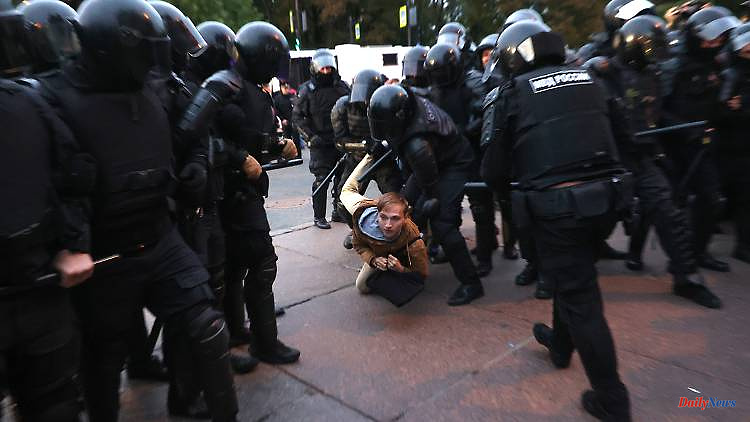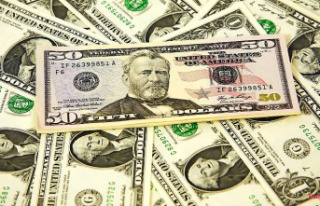After the partial mobilization, the Russian authorities warned opponents of the war as a precautionary measure: they could face 15 years in prison. Nevertheless, people are taking to the streets in at least 24 Russian cities. Activists report hundreds of arrests.
According to activists, more than 400 people across the country have been arrested during protests against partial mobilization in Russia. There were at least 425 arrests in at least 24 Russian cities during spontaneous demonstrations, said the organization OVD-Info, which documents arrests in Russia.
Journalists from the AFP news agency observed dozens of arrests in the capital Moscow and the second largest city, St. Petersburg. At least 50 people were arrested on a shopping street in central Moscow, reporters observed. In St. Petersburg, police rounded up small groups of demonstrators and then arrested them one by one. The demonstrators shouted "No to war" and "No to mobilization".
"Everyone is afraid," said the demonstrator Vasily Fedorov in St. Petersburg. "I'm for peace and I don't want to have to shoot." But it is "very dangerous" in Russia to take to the streets for these demands - "otherwise there would have been many more people." "I'm afraid for myself and for my brother, who is 25 years old and has done his military service," said student Oksana Sidorenko. "He can be drafted."
Russian President Vladimir Putin had announced in the morning a partial mobilization of Russians of military age. According to Defense Minister Sergei Shoigu, around 300,000 reservists are to be sent to reinforce the Russian and separatist forces in eastern and southern Ukraine. According to Shoigu, up to 25 million people could be mobilized - this is the total number of reservists in Russia.
In the face of massive state repression in Russia, the demonstrators are taking a big risk. In the capital Moscow, for example, the authorities warned against participation even before the start of a planned demonstration: the public prosecutor threatened people with up to 15 years in prison. Since the beginning of the war against Ukraine almost seven months ago, the Russian government has been taking tough action against members of the opposition and opponents of the war, including stricter laws.
The Kremlin opponent Alexei Navlany, who was imprisoned in the penal camp, said in a court appearance that President Vladimir Putin's "criminal war" was taking on ever worse proportions. Putin wants to draw as many people as possible into the bloodshed in Ukraine, Navalny said at a hearing about his rights as a prisoner. "In order to prolong his own power, he is tearing apart the neighboring country, killing people there. And now he is throwing a huge number of Russian citizens into the meat grinder," said Navalny.
According to a statement by Navalny's spokeswoman Kira Jarmysch, the politician criticized the fact that uninvolved reservists were being drafted for the war instigated by Putin, but that the Kremlin was not sending the million-strong army into battle. "One thing I don't understand. The army has a million people, the national guard 350,000 and the interior ministry has another one and a half to two million - and so many in the prison system. Why are they drawing in citizens?" Navalny asked.












